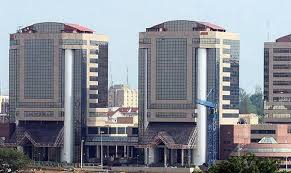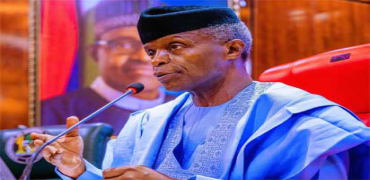FG Eyes Fresh $1.75bn World Bank Loan Despite 40% Revenue Surge
FG Eyes Fresh $1.75bn World Bank Loan Despite 40% Revenue Surge
The Federal Government is seeking a fresh $1.75bn loan from the World Bank, even as official figures show a 40.5% revenue increase in the first eight months of 2025.
Special Adviser to the President on Information and Strategy, Bayo Onanuga, said in a statement on Wednesday that government revenue hit ₦20.59tn between January and August 2025, up from ₦14.6tn in the same period last year. He added that non-oil revenue accounted for 75% of the collections.
“This strong performance aligns with projections, placing the government firmly on course to achieve its annual non-oil revenue target,” Onanuga said.
Despite the surge, Nigeria still struggles with funding gaps in key sectors, especially infrastructure. On Wednesday, indigenous contractors protested at the Ministry of Finance headquarters in Abuja over ₦4tn in unpaid project claims from 2024.
Breakdown of Planned World Bank Loans
According to World Bank records, four projects are lined up for approval before year-end:
$500m – Sustainable Agricultural Value-Chains for Growth (Dec 11, 2025)
$500m – Building Resilient Digital Infrastructure for Growth (Oct 31, 2025)
$250m – Health Security Programme, Phase II (Sept 30, 2025)
$500m – Fostering Inclusive Finance for MSMEs (Dec 18, 2025)
Together, they amount to $1.75bn in fresh financing. These loans will add to the $8.4bn already approved for Nigeria by the World Bank in the past two years, covering 15 projects in energy, healthcare, education, and governance.
Economists React
Experts remain divided on the wisdom of more borrowing.
Adewale Abimbola, a Lagos-based economist, said World Bank loans are often concessional and could support growth if well utilised:
“Borrowing isn’t bad; what matters is utilisation. If tied to viable projects, these loans can stimulate long-term growth.”
But Dr. Aliyu Ilias, development economist, warned of Nigeria’s worsening debt profile, noting the national debt has jumped from ₦87tn in 2023 to ₦149tn in mid-2025, with projections it could hit ₦180tn.
“The impact is being felt in reduced capital spending, rising inflation, and worsening forex pressures,” he cautioned.
Similarly, Dr. Muda Yusuf, CEO of the Centre for the Promotion of Private Enterprise, stressed that the concern is not borrowing itself but debt sustainability.
“Without strong cash flows to service obligations, Nigeria risks borrowing just to repay existing loans—a cycle that worsens fiscal vulnerability.”
Nigeria’s Debt to the World Bank
Figures from the Debt Management Office (DMO) show Nigeria’s debt to the World Bank rose to $18.23bn as of March 31, 2025, up from $17.81bn in December 2024. This represents 39.7% of Nigeria’s $45.98bn external debt stock, with 81.2% owed to the concessional arm, IDA.
By Haruna Yakubu Haruna


















